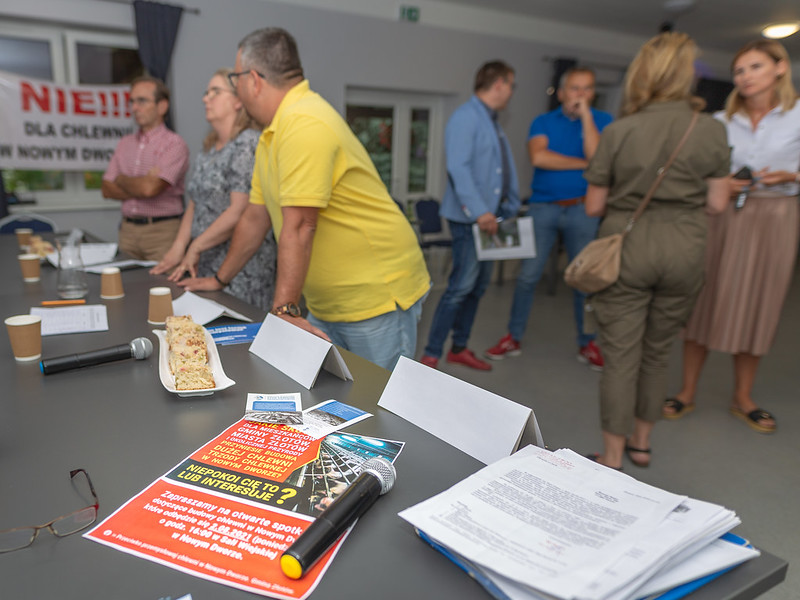- This story is part of a series highlighting local testimonies and collective action against animal factories
In the small village of Nowy Dwór, northwestern Poland, in the Z?otów, local residents found themselves at the heart of a struggle against the expansion of industrial agriculture. A pig farm with 2,000 animals, located in the middle of the village, had already disrupted its residents’ life, causing intense odours, air pollution and health risks. When the farm owner proposed adding another facility to house 1,920 more pigs, the community decided to protest.
A growing issue in Poland
This situation in Nowy Dwór reflects a broader trend in Poland, where the concentration of animal production has sharply increased. According to the agricultural census, the number of animal factories in the country doubled between 2010 and 2020. This industrial expansion is often driven by contract farming, a system where Danish piglets are imported, fattened on Polish farms for a few months, and then sent to slaughterhouses in Germany. Local farmers are given feed and paid to raise the animals in high-density, factory-like conditions.
Building a case
Back to Nowy Dwór where the local community decided to fight back. They formed a social committee and reached out to the EFFATA Association, an NGO focused on environmental and biodiversity protection, for support and to represent them in legal and administrative proceedings against the establishment of the industrial pig fattening unit. Their campaign to stop the farm started on the 8th April 2019 and lasted for three years, combining grassroots activism, legal challenges, and scientific evidence.

EFFATA, acting on behalf of the local community of Nowy Dwór, consulted with a lawyer and an expert on agriculture and environmental protection. Together, they prepared and submitted the necessary legal documents to the Z?otów Municipality Office, challenging the issuance of environmental permits required for the project’s implementation.
After a year of submitting official letters to institutions responsible for environment protection, the matter was brought to court. The Polish Ecological Club (Friends of the Earth Poland) in Kraków, Gliwice Chapter, joined the case and commissioned a study that revealed significant pollution of local water sources (ground and surface waters) due to the existing animal factory. The case, including the results of the scientific study, was presented to local authorities, the media and the public through a well-attended conference, which helped further showcase negative impact of factory farms on local communities and amplify their concerns.
The power of collective action
After years of protests from the local community, administrative proceedings, and public pressure, the investor finally backed down and renounced building an animal factory for contract pig farming, and the head of the Z?otów Municipality cancelled the plan for the new pig farm.
This success was the result of cooperation between many different groups and it demonstrates the power of community action: from locals relentlessly defending their village from harmful investments, to lawyers preparing official letters and representing residents, and environment advocates building bridges with decision-makers and the media, helping spread the word and garner support.







